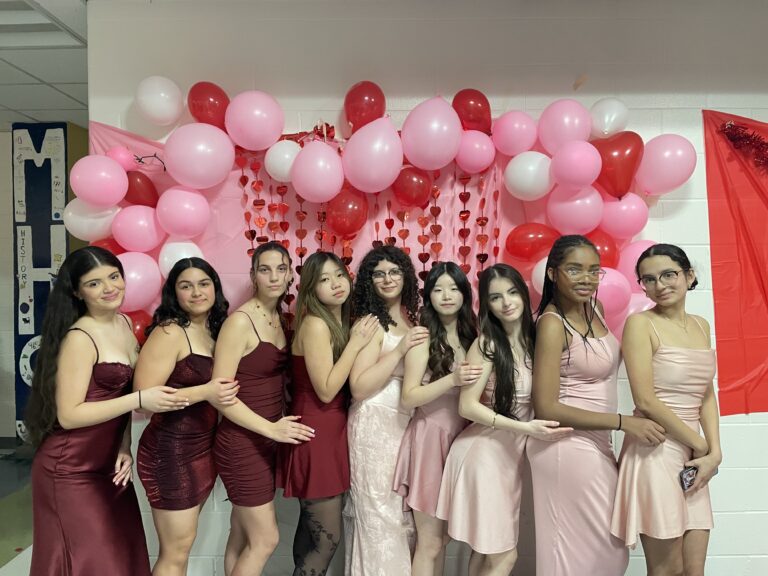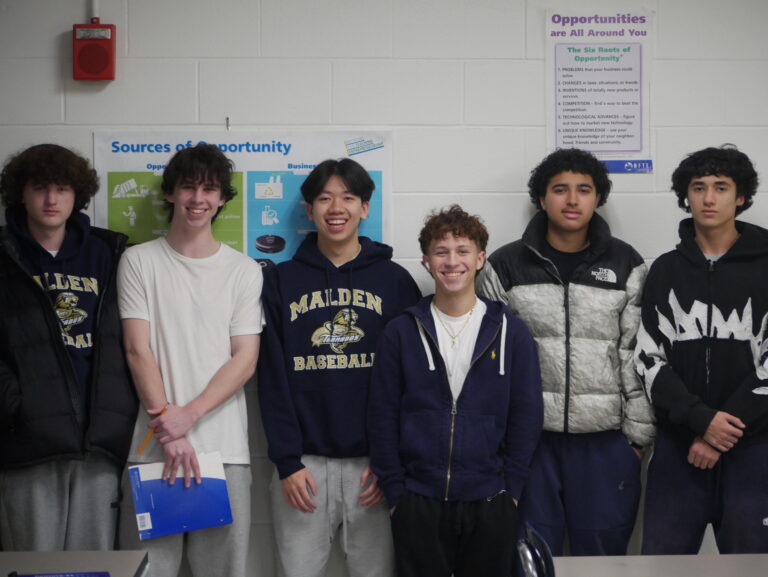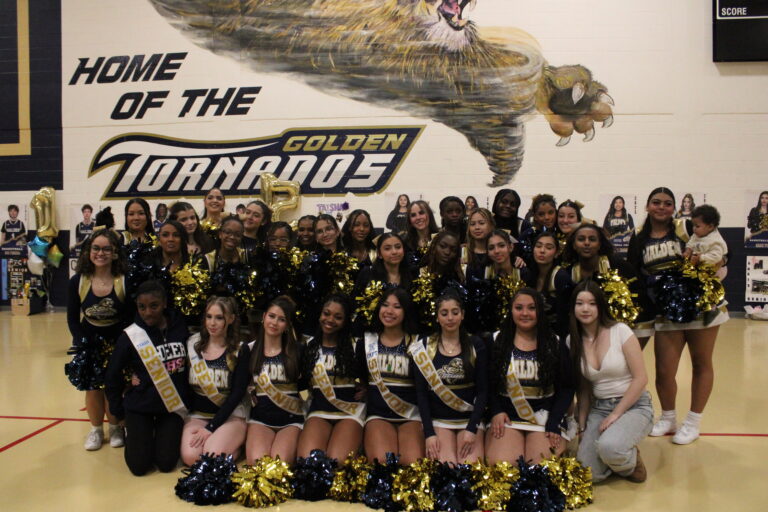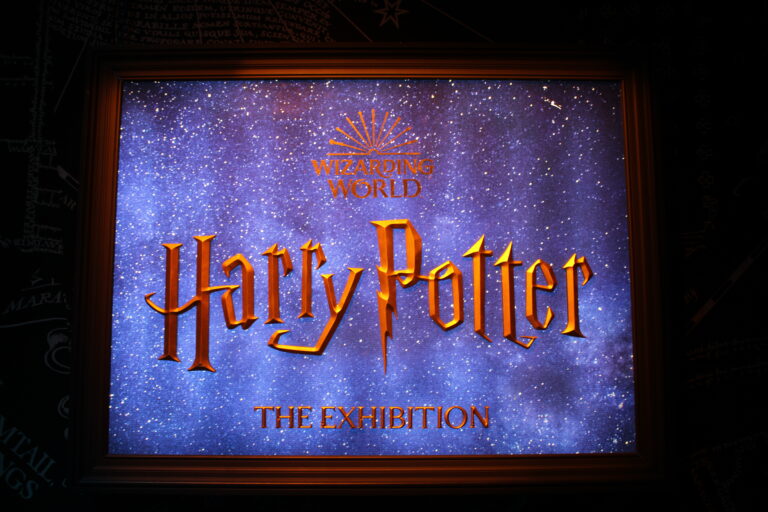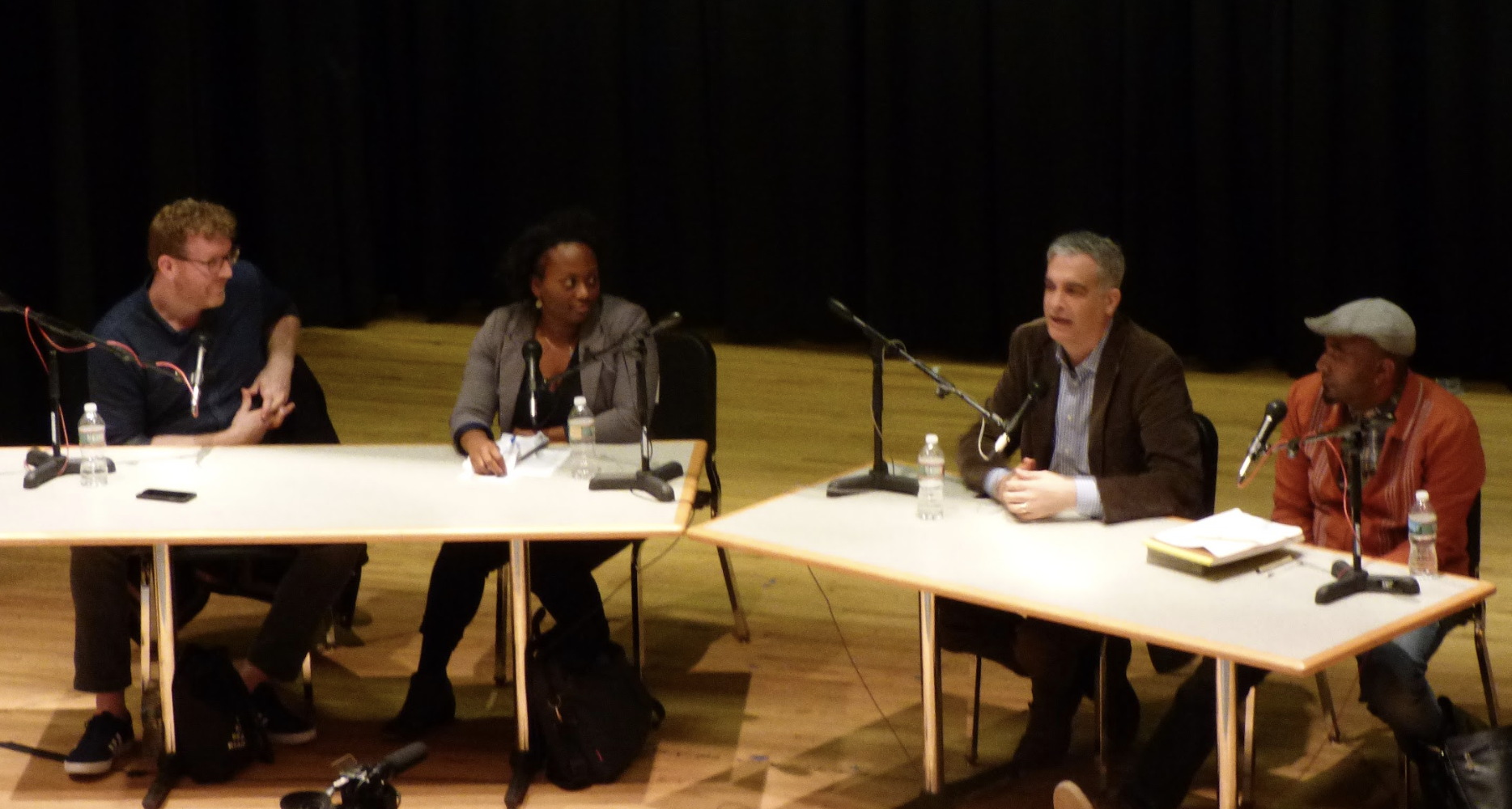
From Left to Right: Brendan Kiely, Kelly Greenidge, Neil Swidley, and Keith Knight. Photo by Ajithaan Sathiyendra.
Written by Sabrina Monteiro and Ajithaan Sathiyendra
Malden Reads, as a part of Malden Access Television (MATV) week, hosted ‘A Conversation on Race’ with guest moderator Kelli Greenidge. Panelists included Keith Knight, a rapper, cartoonist, educator and social activist, Brendan Kiely, Co-author of All American Boys, which was one of this year’s Malden Reads companions books in addition to the main selection The Hate U Give, a novel about police brutality. The event was facilitated by Jodie Zalk from Malden Reads, and Anne D’Urso-Rose from MATV along with Neil Swidey, a staff writer for the Boston Globe Magazine and award winning author of seven books.
Superintendent of Malden Public Schools, John Oteri opened up the discussion by saying that “this is something that [the community] sees nationwide, as well as globally and [he] [thinks] in order to address some of these issues, [the community] needs to have confident…and honest conversations to open up that dialogue.”
The audience consisted of elected officials, teachers and administrators from Malden or other school systems, students, the Malden Reads Steering Committee, and the Malden High School Interact Club who helped out with the event.
During the first half of the discussion, questions were brought up and moderated by Kelli Greenidge. One of the questions asked was “what was everyone’s reaction after reading The Hate U Give and All American Boys?” Brendan Kiely felt that both books are “speaking to young folks in particular because [the characters in the books] are speaking in a language that older people are not accustomed to hearing”. Kiely also mentioned “the race consciousness the characters had in the book” stood out to him while reading the book. Swidey felt as if The Hate U Give “dealt with very heavy issues that were emerging in a very authentic way throughout the book which is very difficult to do in a writing standpoint.”
Another question was “Why is it so hard for people to grasp something if it is a historical fact?” such as the discrimination African Americans still face through FHA loans. Knight believes that “it is not hard for people to grasp, it is just that it is not taught to many people.” He added that efforts to end racism that started less than a century ago does not make up for centuries of racism because “it takes a lot longer to fix something than to break something.”
For the second half of the discussion, the audience had the chance to share their opinions and questions to the panelists.
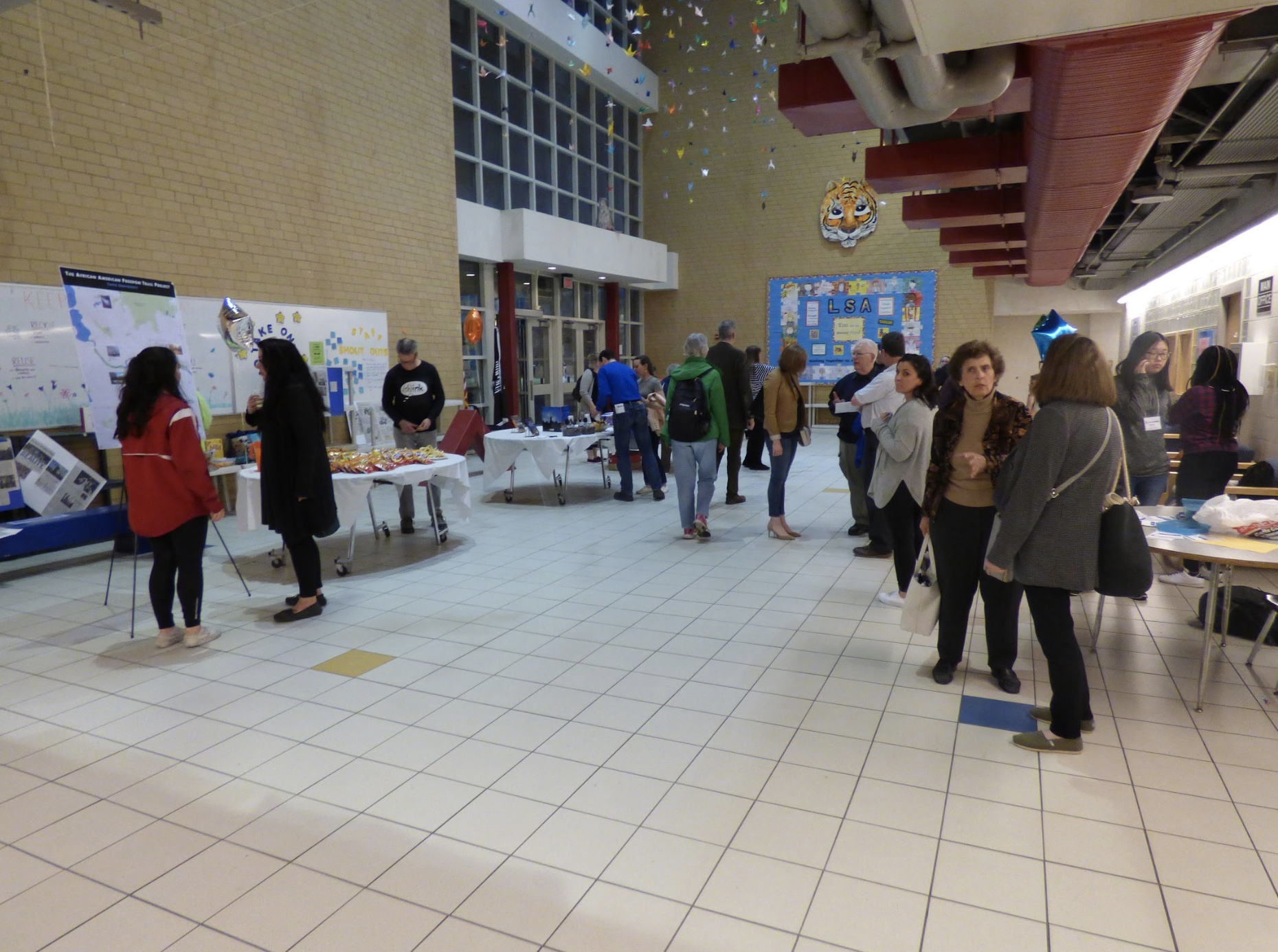
In order to clear any confusion of the discussion, Kiely stated that “[he thinks] it’s important for those of [them] who are white like [him], when their are conversations about, (for the sake of this context, this book), to first figure out who’s saying it and see what [they] can listen to….then recognize that there may be criticism on great works of art and that’s part of the process…[which] [is] ok because this book has affected so many people’s lives. [He can’t tell you] the number of young folks [he’s] been in contact with who are in tears clutching this book because [they] feel like it’s a book that finally spoke to [them].” An audience member then joined in and stated her opinion that she thinks even for her “to hear the diversity in the opinions, it’s so often that [they] read a book written by an African American writer, that [they] think that represents everybody in the community.”
Kelli Greenidge said “whenever a conversation starts about race or any equality or injustice, it becomes ‘that makes [them] feel that [they are] being discluded from the conversation’ when that’s a historical argument that has nothing to do with the problem. One of the problems with the country is that [they] tend to think that it’s all about feelings when structurally that’s not what or where history is.”
Jodie Zalk, the co-facilitator of the event, felt that ‘having an expert panel really helped to give [the audience] some facts in a real basis for conversation, especially with the historical context that the moderator, Kelli Greenidge, was able to give because she is a history professor.” Zalk mentioned that a challenge that was faced while organizing this event “was the change in venue” from Beebe to Linden because there was another event going on at the time.
Malden Reads is starting to wind down programming for this community as they recently had their last community dinner. They host a few more events which includes ‘Bubbles & Books’ and ‘Summer Storytimes for School Success’. If you are interested in discussing about these topics, visit the Malden Read’s discussion page and share any opinions or thoughts.

